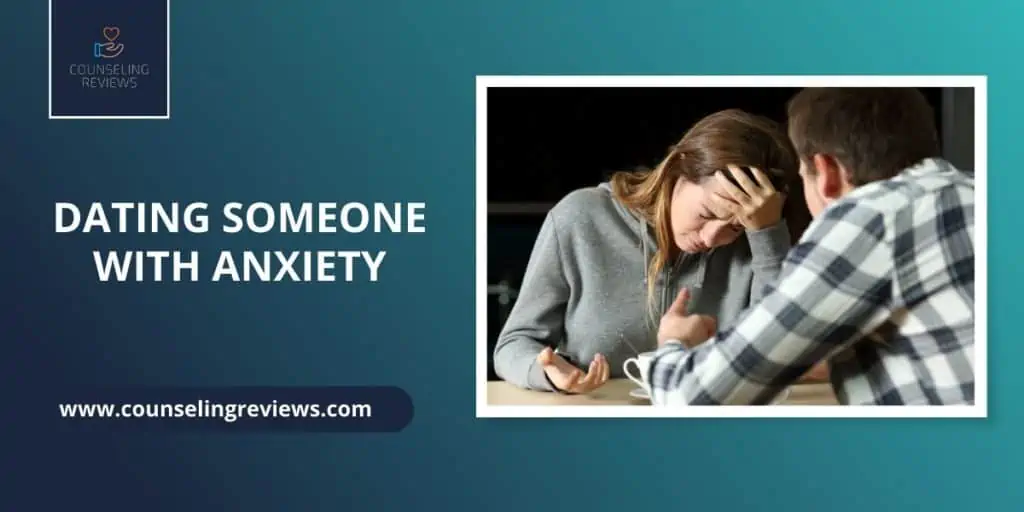Relationships are already complicated territory, whether a person’s relationship is their first or their umpteenth. They are emotionally taxing, involve sometimes challenging levels of vulnerability, and leave no guarantee of expectations being met.
Anxiety has become a condition of our modern-day world, with many suffering from one or more of its different forms. When anxiety is thrown into the mix of a romantic relationship, the relationship can turn into a major source of stress for partners and leave them wondering if their best efforts are worthwhile.
What Is Anxiety
Anxiety is a natural response to the stresses of daily living. It is a function of the “fight or flight” response that alerts the body of a danger or threat in the immediate environment. What ultimately characterizes normal anxiety from an anxiety disorder is how much anxiety consumes a person’s life.
The experience of someone living with anxiety means being in a constant state of stress, regardless of whether there is a current stressful situation at hand. For someone with generalized anxiety disorder, this means being so fearful of a personal trigger that the thought alone of encountering this trigger can result in frenzied, physical manifestations of anxiety. This may include symptoms such as shortness of breath, panic attack, and insomnia. Similarly, a person with social anxiety may choose to remain at home whenever possible out of immense, paralyzing fear of social interaction.
How Does Anxiety Affect Relationships?
It is customary for those who have just begun dating to put their best foot forward in an attempt to win each other over – such is characteristic of the honeymoon phase of relationships. All is blissful, and partners revel in the joy of getting to know a new romantic interest who has, to that point, reciprocated their advances. However, this heightened stage of romance fades with time, and that shiny veneer is eventually peeled off, revealing what truly lies underneath.
Anxiety produces unwanted behaviors in relationships that can leave one partner walking on eggshells at all times, and the other partner in a constant state of disappointment.
The cornerstone behaviors of an anxious partner in the context of dating are problematic dependency and avoidance. This dependency stems from a prevailing doubt of the other partner’s intentions and may consistently seek reassurance and validation. This can come in the form of passive-aggression, constant calling and messaging, and the internal worry that the other partner may not love them or may be hiding something.
On the other side, partners whose anxiety presents as avoidance tend to go out of their way to avoid any interaction that may cause distress. For instance, those with intimacy issues may avoid intimacy not out of distrust of their partner, but out of their own fears of intimacy. Conflict-avoidant partners may “ghost” the other partner after a difficult conversation not out of a lack of care or concern, but as a means of self-preservation. This can result in disequilibrium in the dynamic of the relationship and cause the partner to feel unwanted and inadequate, even when the opposite is the case.
What to Do If Your Partner Has Anxiety
Having a healthy and fulfilling relationship with an anxious partner requires honest, candid communication, as well as compassion and understanding.
Although the stigma surrounding mental health has reversed for the better in recent times, it is still an intimidating conversation to have with a romantic partner at any stage in a relationship. Both parties must have clear, open dialogue about their needs and expectations in the relationship and must be willing to set realistic boundaries as needed, especially pertaining to the anxiety-driven behaviors that may endanger the relationship. Leave judgment behind and lead the conversation with a level head and a listening ear, yet at the same time make clear that unfair insults or accusations are not tolerable.
Conclusion
Be kind – do not simply dismiss a partner’s anxious feelings, but understand what your partner is communicating through anxious behavior. Take the opportunity to look within yourself, asking yourself whether you are providing your partner with the best of yourself and are offering him or her your genuine support. If you feel as though the support your partner needs goes beyond what you can offer, gently suggest outlets, such as therapy, that can improve your partner’s quality of life by giving them a way to constructively work through their anxious thoughts and feelings.





